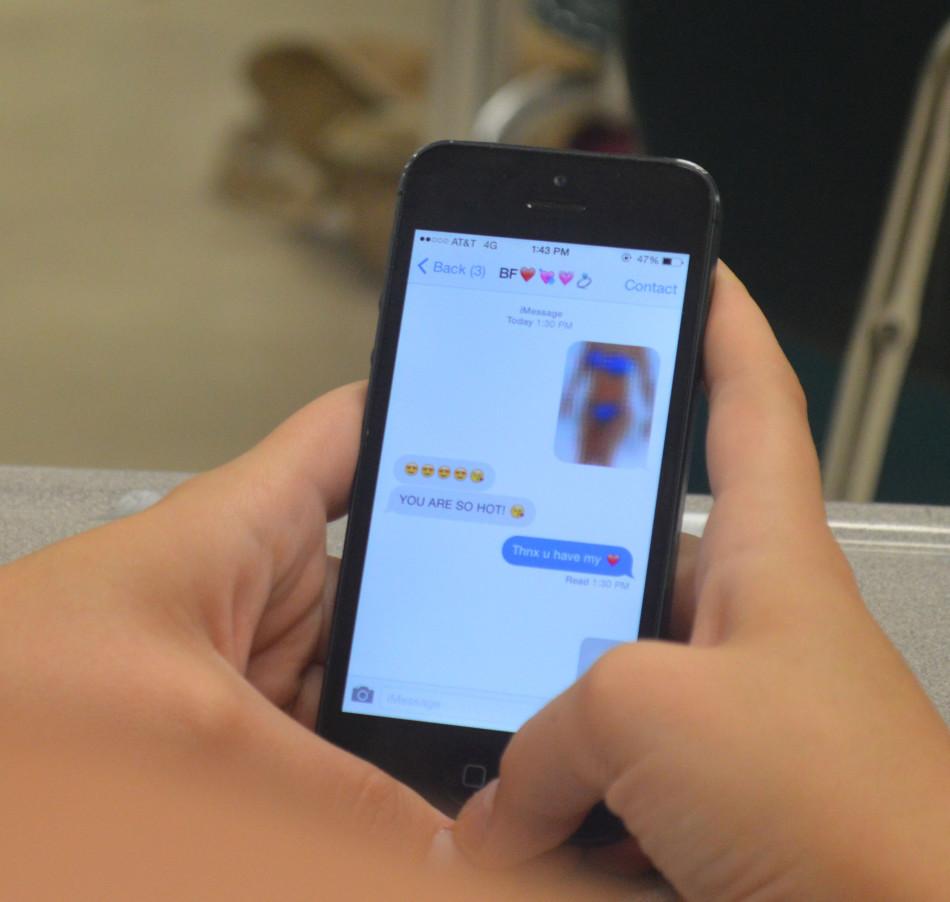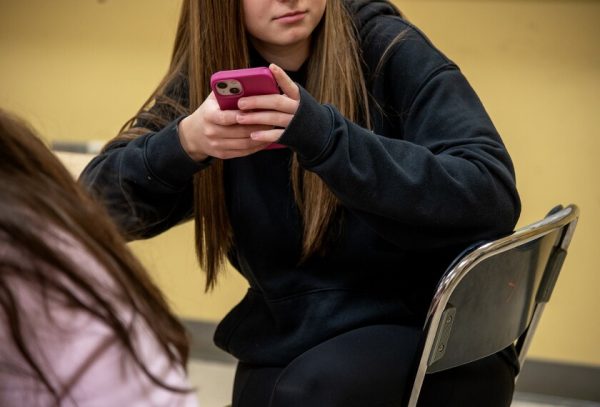Maybe You Shouldn’t Send It
Recently, “sexting” has been a “hot” topic in Riverbend’s hallways among students and administrators alike. Ever since the invention of text messaging and phone apps like Snapchat, sexting, “the act of sending or receiving sexually explicit pictures or messages via an electronic device,” has been a huge moral and legal issue among teenagers.
24% of teens and 33% of college-aged people have admitted to sexting, according to DoSomething.org, an organization that hosts websites that run campaigns. Some critics believe these numbers are largely underreported by teens because they fear legal consequences. Nowadays most teens have some sort of smart phone, which allows users to download apps. One popular app, Snapchat, allows users to send a picture which can be viewed from 1 second to 10 seconds depending on what they set it to. Once the time expires, the photo can no longer be viewed. This can be deceiving; many teens believe the photo has been deleted and cannot be saved. However, the person receiving the picture via Snapchat can “screenshot” the picture; there are also many apps available that will allow users to save the Snapchat without a “screenshot” alert appearing. Apps like Snapchat and similar ones almost facilitate texting among young adults, or they at least provide a false sense of security about sexting.
For teens under the age of 18, engaging in sexting can result in being charged with three different felonies depending on circumstances in the Commonwealth of Virginia. The first offense is Production of Child Pornography (§18.2-374.1:B): “filming or photographing or otherwise reproducing sexually explicit visual material of a subject under the age of 18.” It is Class 5 Felony and punishable by one to twenty years in prison, and can require mandatory registration on the national sex offender registry. The second offense is Possession of Child Pornography (§18.2-374.1:1/A): “A person knowingly possesses child pornography shall be guilty of a Class 6 Felony,” which is punishable from one to five years in prison. The third offense that can be charged for sexting is Distribution of Child Pornography (§18.2-374.1:1/C): “Any person who distributes or electronically transmits child pornography shall be guilty of a Class 6 Felony,” which is punishable from one to five years in prison. Also, any electronic devices containing child pornography will be seized be the sheriff’s office and will never be returned.
Many teens fail to understand or realize the severe consequences of sexting, and not knowing them does not make sexting excusable. Teenagers need to realize that their actions will have severe repercussions later on in their lives. When asked whether a teenager would be put on the Sex Offender Registry, Deputy Pyktel, Riverbend’s Student Resource Officer, stated, “Teens could be, if convicted, because the laws were intended to convict predatory behavior.” This has all been the legal ramifications to sexting. There are also moral and other issues with teen’s actions. Deputy Pyktel also said, “These are photos that they will have to explain to coworkers, children, and college professors. Once it is out there, there is no way of getting it back.” This is another ramification teens fail to understand; these photos, especially ones on the internet, can be found with a simple Google search. This is something that a teen who has sent sexts will need to address later in their life, and it may hinder them.
Sexting has become a huge issue for our generation, both morally and legally. This issue will have severe repercussions for teens who decide to continue this unbecoming practice. Think before you hit send, and understand the repercussions for the potentially life ruining decisions.




